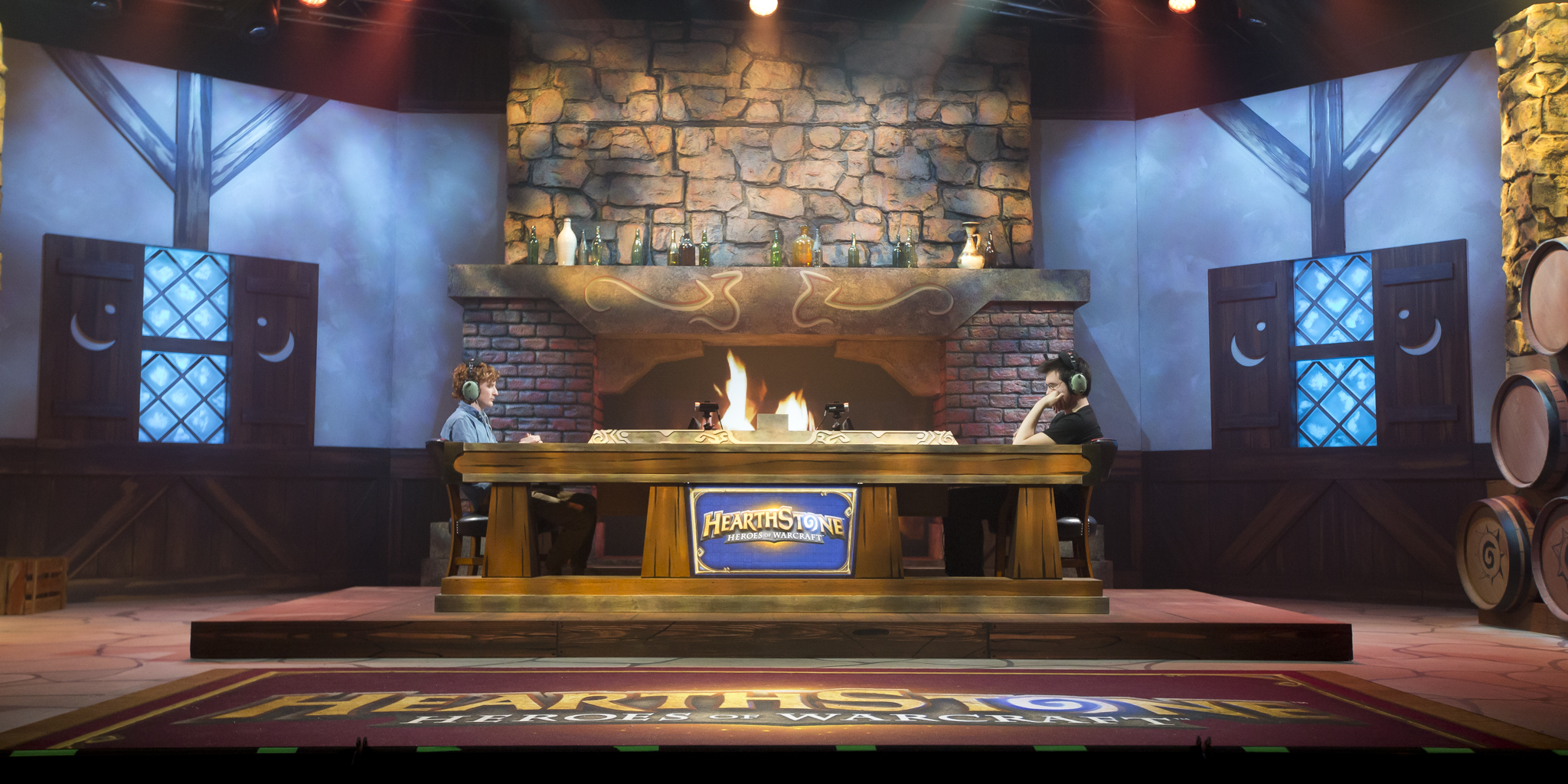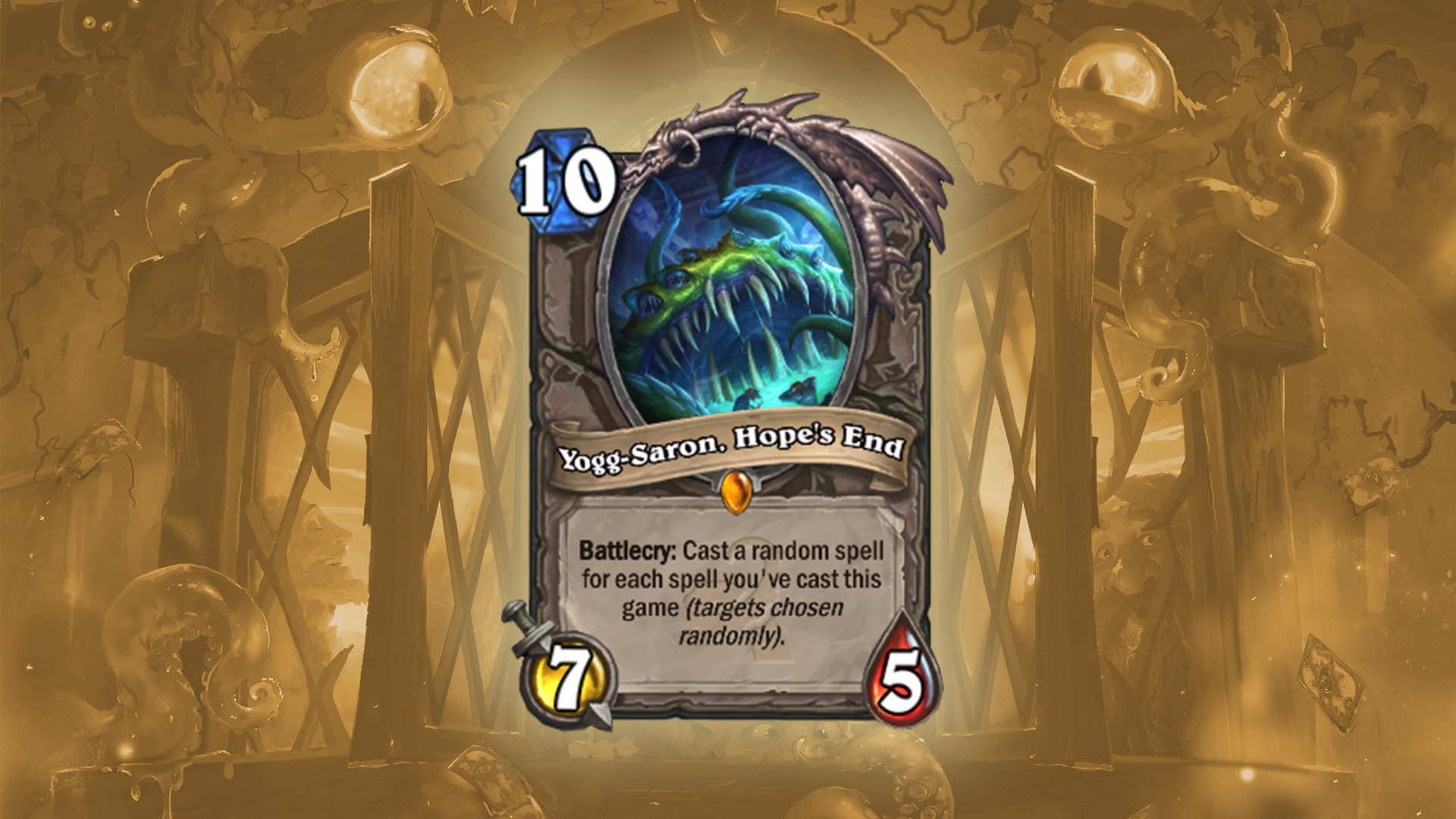
PCG: Do you guys think that Hearthstone is in a place now where it’s going to be difficult for any other digital CCG to challenge it? Or do you think that there’s still room for other games to enter the market?
Frodan: I play a lot of card games, just because I feel like it helps round out that experience. I think that there is a lot of room, but it’s really hard to do what Hearthstone has done, because they strike the middle perfectly in almost every category. They have a game that’s simple enough that it doesn’t turn you away from its complexity, but it’s also deep enough that if you want to pursue high levels of play, you can—contrary to Twitch chat’s opinion. And then there’s also the fact that it’s extremely watchable. The pacing is good, the art is very fun, and they have a lot of things that make it come to life like voice animations. It is lightning in a bottle in many ways. A lot of people have tried to introduce competitors, but one thing that Hearthstone really just doesn’t explore is whether or not you can be truly competitive. There’s kind of something, but the lack of support... the fact that we can’t even go back and watch a replay of a game, is actually mind blowing.
"There’s no achievement in hitting top 100 with a deck that everybody else has hit top 100 with,"
TJ "Azumoqt" Sanders
TJ: I think if a game is going to challenge Hearthstone it’s gotta be really different. They’re never going to do what Hearthstone does better. If you look at games like Duelyst, it’s got a positioning aspect. You look at games like Clash Royale, it’s got a realtime aspect. I was trying out a game called Cards and Castles—it’s a mobile game, and it sort of combines all of them. It has a kind of realtime aspect, a positioning aspect, and a collectible card game aspect.
Gwent is a game that I think actually has potential, because Gwent is a card game that’s already been established. The actual Gwent card game had two developers at CD Projekt Red that made the entire thing within The Witcher 3, and it was wildly successful. It was a game within a game. That one has a lot of unique aspects to it, so that one maybe [could challenge Hearthstone].
PCG: TJ, you hit top 100 with a Yogg-Zoo deck. You should be competing!
TJ: I’ve tried competing, and that’s sort of what drew me to Hearthstone in the first place. I was a competitor, I’ve played League of Legends semi-competitively.
Frodan: He was on a Challenger team.
The biggest gaming news, reviews and hardware deals
Keep up to date with the most important stories and the best deals, as picked by the PC Gamer team.
TJ: I was on a Challenger team, yeah.
PCG: You looked sad when you said that.
TJ: Yeah, it was rough times.
PCG: Dan, are you gonna try out TJ’s Yogg-Zoo?
Frodan: I will! I like playing TJ’s decks because I like to make fun of him for how bad they are.
PCG: What’s the key to making that deck work?
TJ: Well, just playing regular Zoo. Draw the good cards, don’t draw the bad cards. [laughs]
Frodan: TJ is trying to convince us that Spreading Madness and Bane of Doom and Yogg-Saron are the MVPs when I tell him that you still win because you have Flame Imp on turn 1. [laughs]
TJ: I was playing against Sjow on Ladder yesterday, and he was the first person I had played against with the deck. And I was curving out like normal Zoo and he messaged me like “I remember the days when [you] used to play wacky decks.” And I told him I have Yogg in the deck, and the next card I played was Spreading Madness. So it curves out like normal Zoo, but once I hit Legend—there’s no achievement in hitting top 100 with a deck that everybody else has hit top 100 with, so I like to play that crazy stuff.

PCG: We didn’t see much Yogg-Saron over the two days of the tournament.
TJ: Sadly.
PCG: Yogg feels like it encapsulates the difference between what people want to see on streams and what the competitive scene seems to want, but it’s been creeping into competitive decks recently. Where do you guys stand on Yogg as a card?
Frodan: I think what Yogg represents is more important than anything. I think Yogg represents the fact that Blizzard can continue to, one: always surprise us with fun. No matter how competitive a player you are, when you watch a Yogg do something pretty crazy, you can kind of enjoy it. And two: I do know that Blizzard actually specifically designed Yogg with this in mind, they know that people will be watching and they know people will be streaming it. They know that it could be in tournaments, but they don’t know if they want it to be. That’s why a card like Servant of Yogg-Saron was deliberately underpowered, because they don’t want it to be too competitive. And the reason why I think this is important is that fundamentally Blizzard is learning with us. People are putting Hearthstone on the same pedestal as Counter-Strike and Dota 2 and League of Legends, and that’s not what Hearthstone is trying to be, but everyone compares it just because it happens to be in the same Battle.Net launcher or the same gaming platform. Hearthstone can just be Hearthstone, and Blizzard is learning so many lessons.
"If Yogg starts to be put in every deck in competitive play then I think it would be a real issue."
TJ "Azumoqt" Sanders
And it’s not even fair to compare Hearthstone to [Magic: The Gathering]. Magic has had 20 years of learning, and they’ve had terrible formats! They’ve had bad times where it’s just like 15 out of 16 decks were the same. People act as if that’s the promised land, the grass is always greener. And the one thing that always fixes Hearthstone is time. I’m already in talks for 2017, and 2017 is gonna be ten times more fun than 2016, which is already way more fun than 2015 and so forth. In time, we’ll have a lot more formats and actually illustrious histories. If Thjis can do this in two years, imagine what he can do in five to six years. We’ll have better casters, I think we’re all leveling up. And I mean, I’m saying this as myself too. We’ll all get better at the game and understand what’s entertaining. And Blizzard will design better cards and better expansions. Time is the answer to everything.
TJ: I love Yogg. The only problem I have with Yogg is that every other problem card—and I’m talking strictly from a competitive standpoint now—every other problem card that people have complained about when it comes to variance has had a level of variance that you can calculate. Has had a level of variance that you can play around the maximum potential. Yogg is not.
PCG: You don’t know which weapon you’re going to get off Malkorok, but you know which weapons you could get off Malkorok.
TJ: You know Imp-losion is always going to be 2-4, you know Flame Cannon is always going to do 4 damage to one of the minions. So that’s the one thing I have with Yogg, and if Yogg starts to be played in every deck—and I put it in every deck and it wins in every deck—if Yogg starts to be put in every deck in competitive play then I think it would be a real issue. But it’s fun right now, and I do agree with Dan: time is the answer.
Frodan: TJ is not a fan because he’s a competitive player, I’m a fan because I cast games, and I do think that, in the end, Yogg being competitive or not isn’t really the answer. Do you think it edifies the experience, and I think it does.
With over two decades covering videogames, Tim has been there from the beginning. In his case, that meant playing Elite in 'co-op' on a BBC Micro (one player uses the movement keys, the other shoots) until his parents finally caved and bought an Amstrad CPC 6128. These days, when not steering the good ship PC Gamer, Tim spends his time complaining that all Priest mains in Hearthstone are degenerates and raiding in Destiny 2. He's almost certainly doing one of these right now.


